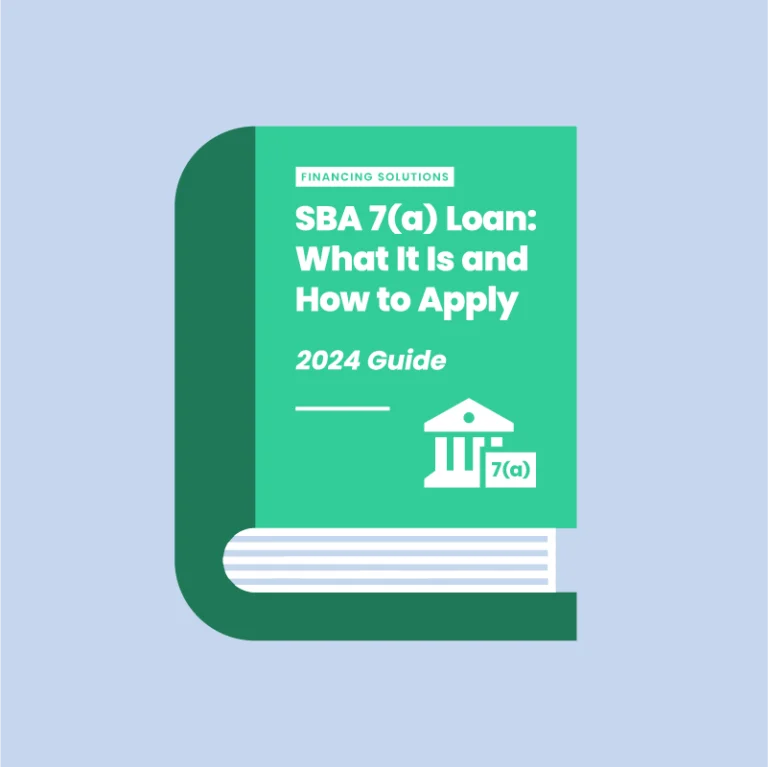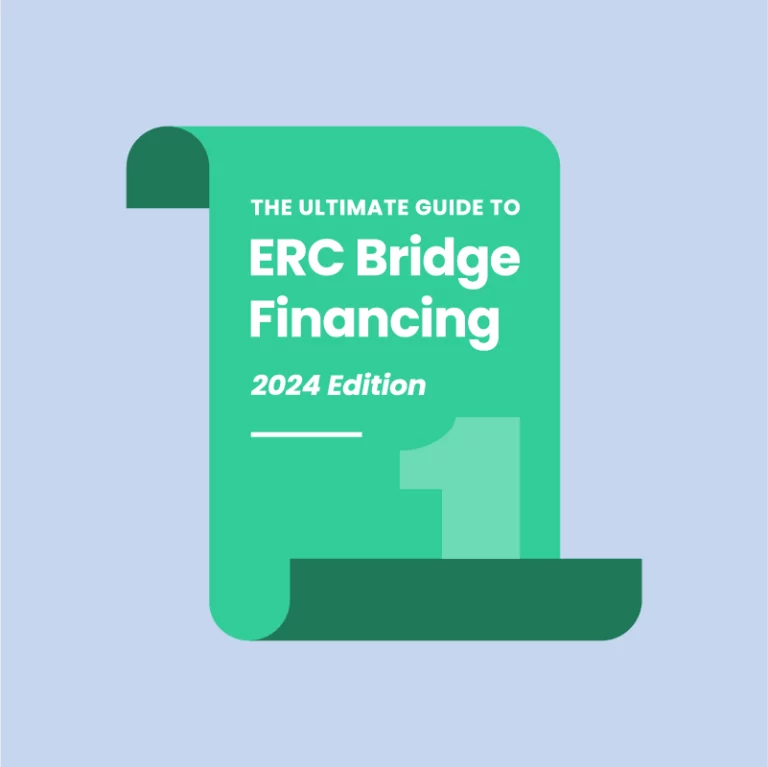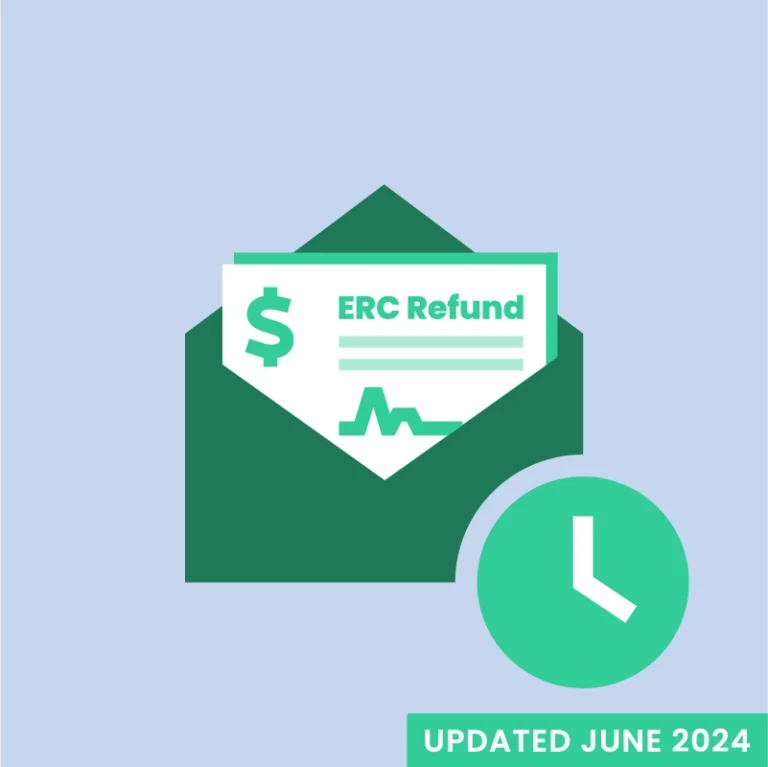As a small business owner, you know the importance of securing capital. After all, your business needs cash to cover operating costs, scale, and increase profitability. Without proper cash flows, it can be difficult to compete and keep the doors open.
Few financing options are as flexible and affordable as the U.S. Small Business Administration (SBA) 7(a) Loan Program. It’s the SBA’s flagship loan product and most popular for good reason. In 2023 alone, the SBA guaranteed over 57,000 of these loans with a total approval amount exceeding $27.5 billion.
To help you decide if an SBA 7(a) loan is right for you, we’ve collected everything you need to know about qualifying, applying, getting approved, and navigating the program’s various nuances.
What Is an SBA 7(a) Loan?
The SBA 7(a) loan is the Administration’s primary loan program designed for businesses that don’t qualify for conventional financing. It can be used for a variety of applications, including working capital, equipment financing, real estate purchases, refinancing, and more. Since it’s a government-backed program, borrowers who qualify are likely to receive higher loan offers, longer repayment terms, and lower interest rates.
SBA 7(a) Loan Pros and Cons
The SBA 7(a) loan is a desirable choice for many, but like any business financing product — it has its caveats. Before you apply for SBA 7(a) funding, it’s wise to consider the advantages and drawbacks.
SBA 7(a) Loan Advantages
Here are some of the pros you can typically expect from an SBA 7(a) loan:
- High Maximum Loan Amounts. The SBA 7(a) program lets you borrow up to $5 million, depending on the type of 7(a) loan you apply for and your eligibility.
- Long Repayment Terms. Repayment terms for an SBA 7(a) loan are up to 25 years, so you needn’t stress about high monthly payments.
- Low-Interest Rates. The SBA caps the maximum fixed and variable interest rates lenders can charge. As of March 2024, maximum fixed rates are between 13.5% and 16.5%.
- Limited Fees and Penalties. The SBA limits the types of fees lenders may impose and how much those fees can be.
- Wide Use of Funds. Borrowers may use SBA 7(a) funds for nearly any business purpose.
SBA 7(a) Loan Drawbacks
Here are some of the cons associated with this government-backed loan:
- Required Down Payment. Lenders generally require a down payment of 10% to 20% of the loan amount, although there are some exceptions for loans less than $50,000.
- Required Collateral. Lenders will require collateral on loans over $350,000 for the Standard 7(a) Loan.
- Lengthy Funding Timelines. The time it takes to fund an SBA 7(a) loan is 30 to 60 days or longer. This can be prohibitive when timing is a priority.
- Cumbersome Application Process. Applying for an SBA 7(a) loan requires a lot of paperwork, time, and due diligence.
Types of SBA 7(a) Loans
There are seven different types of 7(a) loans, including standard and specialized loans, each intended to fulfill specific needs within the business ecosystem.
Loan Type | Financing Amount | Maximum Guarantee | Repayment Term | Use of Funds |
|---|---|---|---|---|
Standard 7(a) Loan | $5 Million | 85% for Loans Less Than $150,000 and 75% for Loans Greater Than $150,000 | Up to 25 Years | Working Capital, Equipment, Real Estate, Business Expansion, and More |
7(a) Small Loan | $350,000 | 85% for Loans Less Than $150,000 and 75% for Loans Greater Than $150,000 | Up to 25 Years | Small Projects and Financial Needs |
SBA Express Loan | $500,000 | 50% | Up to 7 Years (If Used as a Line of Credit) | Expedited Funding |
Export Express Loan | $500,000 | 90% for Loans Less Than $350,000 and 75% for Loans Greater Than $350,000 | Up to 7 Years (If Used as a Line of Credit) | Expedited Funding for Export Development |
Export Working Capital Loan | $5 Million | 90% | Up to 3 Years | Working Capital for Export Sales |
International Trade Loan | $5 Million | 90% | Up to 10 Years | Long-Term Financing for Export Sales and Competition |
CAPLines | $5 Million | 85% for Loans Less Than $150,000 and 75% for Loans Greater Than $150,000 | Up to 25 Years | Short-Term and Seasonal Needs |
SBA 7(a) Loan Requirements
Eligibility for an SBA 7(a) loan is determined by the Administration’s minimum requirements, as well as your lender’s requirements. Generally, this starts with the following criteria:
- You’re legally registered as a for-profit business.
- You operate and have a physical location in the United States or its territories.
- You satisfy the SBA’s definition of a “small business.”
- You’re able to demonstrate the need for a loan and describe the purpose for which you’ll use the funds.
- You’re not delinquent on any existing government loans.
- You’ve sought alternative financing options before applying for an SBA 7(a) loan.
Time in Business
The SBA doesn’t state time in business as one of its criteria for a 7(a) loan. Most lenders, on the other hand, require two years in business.
Creditworthiness
In this case, the SBA does state creditworthiness as one of its criteria for a 7(a) loan—even if it doesn’t specify a minimum credit score. The Administration uses the FICO® Small Business Scoring Service℠ (SBSS) to prescreen its 7(a) applicants.
What’s more, lenders typically require a minimum credit score of 650 or higher.
Ineligible Businesses
The SBA has defined several types of businesses that are ineligible for its loans, including:
- Charitable, Religious or Non-Profit Organizations
- Financial Institutions Engaged in Lending or Life Insurance
- Real Estate Investment Firms
- Multi-Level Marketing Companies
- Gambling Entities
- Businesses Engaged in Illegal Activities
- Government-Owned Corporations
- Speculative Businesses
SBA 7(a) Loan Rates
The SBA caps the maximum interest rates, which may be fixed or variable, 7(a) lenders can charge. Maximum interest rates are calculated using the prime rate or optional peg rate.
SBA 7(a) Fixed Rates
Fixed interest rates for 7(a) loans are determined by the prime rate as of the first business day of the month your loan begins.
Financing Amount | Maximum Fixed Rates |
|---|---|
Less Than $25,000 | Prime Rate* + 8.0% |
$25,001 to $50,000 | Prime Rate* + 7.0% |
$50,001 to $250,000 | Prime Rate* + 6.0% |
Greater Than $250,000 | Prime Rate* + 5.0% |
*The current prime rate as of May 2024 is 8.50%. The SBA publishes updated prime rates and maximum fixed rates each month on its FTA Wiki page.
SBA 7(a) Variable Rates
Variable interest rates for 7(a) loans are computed using the base rate. The SBA allows 7(a) lenders to use one of two reference rates as their base rate: the prime rate or the optional peg rate.
Financing Amount | Maximum Variable Rates |
|---|---|
Less Than $50,000 | Base Rate + 6.5% |
$50,001 to $250,000 | Base Rate + 6.0% |
$250,001 to $350,000 | Base Rate + 4.5% |
Greater Than $350,000 | Base Rate + 3.0% |
SBA 7(a) Loan Fees
Apart from interest, SBA 7(a) loans have additional fees. Once again, the SBA limits what fees can be charged and how much each fee can be. The following is a list of the fees you may run into:
- SBA Guarantee Fee. The SBA charges a fee for the loans it guarantees under the 7(a) program. This fee ranges between 0.25% and 3.75% of the guaranteed portion of the loan and is often charged to the borrower.
- SBA Packaging Fee. This is a fee that 7(a) lenders may assess to organize your loan documents before submitting your application to the SBA.
- SBA Servicing Fee. This is a fee that 7(a) lenders often charge to cover the cost of billing, processing, recordkeeping, and other ongoing management expenses.
- SBA Closing Cost(s). Sometimes referred to as an “out-of-pocket expense fee,” this is a fee that 7(a) lenders charge for collateral appraisals, business valuations, title and attorney fees, and other miscellaneous expenses.
- SBA Late-Payment Fee. 7(a) lenders may charge a late-payment fee when borrowers miss a scheduled loan payment by more than 10 days. The SBA allows this fee to be up to 5% of the payment amount.
- SBA Prepayment Fee. The SBA may charge a prepayment penalty when a borrower decides to pay off 25% or more of a loan term early. This only applies to 7(a) loans with a repayment term of 15 or more years.
How to Apply for an SBA 7(a) Loan
Here are the steps you need to know to apply for an SBA 7(a) loan:
1. Find a Trusted SBA 7(a) Lender or Broker
Research trusted SBA lenders and brokers to determine what types of 7(a) loans they offer, their eligibility requirements, rates, terms, and fees.
To streamline this process and boost your approval odds, consider an institution like 1st Capital Financial. We specialize in SBA 7(a) loans and have the experience to help you navigate the application process.
2. Gather the Necessary Documents and Apply
Your SBA 7(a) loan application will require a lot of paperwork. While your lender or broker should be able to assist you, you can speed up the process by collecting the following:
- SBA Form 1919 (“Borrower Information Form”)
- SBA Form 912 (“Statement of Personal History”)
- SBA Form 413 (“Personal Financial Statement”)
- Copies of Your Business’s Financial Statements (e.g., Balance Sheets, Debt Schedule, Profit and Loss Statements, and Financial Projections)
- Copies of Income Tax Returns
- Copies of Business License(s) and Registration(s)
- Copies of Articles of Incorporation and Bylaws, or Operating Agreement
- Copy of Business Plan With Relevant Overview, Company History, and Owners’ Resumes
- Previous Loan Application(s)
Once you have all the required documents and information, submit your SBA 7(a) loan application with your chosen lender or broker. Be prepared to respond to additional requests.
3. Await Your Approval Decision and Letter
You will receive an approval letter from the lender or broker you applied with that outlines your offer based on what you’ve provided so far. This is a preliminary approval. The final commitment for your loan is contingent on additional underwriting.
Your approval letter will generally include the loan amount, down payment, collateral (if applicable), repayment term, approximate interest rate, and monthly payment. Note that variable interest rates are not assessed until closing.
4. Close and Receive Loan Funds
Your lender will review and verify your application before submitting it to the SBA. Underwriting times will vary by 7(a) loan type, lender, and your responsiveness to requests for additional documents and information. The SBA’s approval times for most 7(a) loan types are five to 10 business days.
Once the SBA approves your application, the closing process begins, and you may be asked to meet further authorization requirements or provide evidence of collateral. Closing generally takes 30 to 60 days. If a collateral appraisal, business valuation, environmental investigation, or other service is needed — it will be added to your closing costs.
FAQs About SBA 7(a) Loans
An SBA 7(a) loan is considered easier to qualify for than a conventional loan. However, it may be hard if your business doesn’t meet all the SBA’s and lender’s or broker’s requirements. Insufficient annual revenue, poor credit, and less than two years in business are situations when applicants face challenges.
The timeline to fund an SBA 7(a) loan depends on the type of 7(a) loan you are applying for and the lender or broker you use to apply. Approval timelines will vary, but once an approval decision is made and a letter is received — it will typically take 30 to 60 days to fund the loan.
The short answer is yes — the SBA requires a personal guarantee from anyone with 20% or more ownership in the business. However, 7(a) lenders have some discretion over who has to sign a personal guarantee and what the terms entail.
No, collateral and a personal guarantee are not the same. Collateral is an asset that can be seized if a 7(a) borrower’s loan is not repaid as agreed upon. A personal guarantee is an acknowledgment that a 7(a) borrower signs stating they will pay back the loan personally if the business cannot.
The SBA doesn’t specify a minimum credit score; however, the Administration does consider creditworthiness a factor for eligibility. Most lenders require a minimum credit score of anywhere between 650 and 680. The recommended credit score for 7(a) borrowers is 690 or higher.
SBA 7(a) Loan Alternatives
If your business does not qualify for an SBA 7(a) loan, or if you decide this is not the best option for you, consider these alternatives:
- SBA Microloan. The SBA’s microloan program lets you borrow up to $50,000 through an approved not-for-profit lender. If you’re launching a new business, this option may be worth considering since the eligibility requirements are less strict (e.g., minimum credit scores are lower, and there’s typically no time-in-business stipulation).
- SBA 504 Loan. The SBA’s 504 loan program provides long-term, fixed-rate financing up to $5.5 million for owner-occupied real estate, heavy equipment and machinery, or special projects. While this program has less utility than the SBA’s 7(a) program, it can be a better option in certain situations.
- Business Line of Credit. A business line of credit gives you access to anywhere from $50,000 to $2 million, which can be borrowed, repaid, and borrowed again. It’s a revolving loan, so you only pay interest on the credit you use. If you need access to capital quickly and with more flexibility than a business credit card, a line of credit may be a good option.
- Equipment Financing. Equipment financing lets you borrow up to $5 million for the purchase of new equipment to start or grow a business or the cost of repairs or upgrades. Since equipment financing is already secured, the eligibility requirements are more lenient than those of SBA loans.
Start Your SBA 7(a) Loan Journey
The SBA’s 7(a) loan program is undoubtedly one of the best financing options small businesses have in 2024. It boasts unmatched flexibility, competitive rates and fees, and generous repayment terms. While it is not the easiest or fastest type of loan to apply for, its advantages outweigh its drawbacks for those who qualify.
If you believe your business may be eligible or have questions, we encourage you to start your SBA application online with 1st Capital Financial. Our financing experts will be able to guide you through the entire lifecycle of your application, answer your questions, and help you overcome any obstacles.
Apply for an SBA 7(a), Express, or 504 Loan Today





